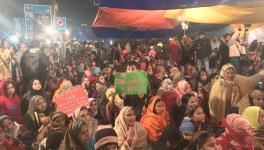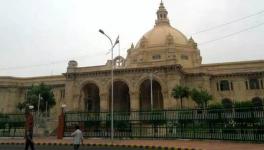Why NRC Will Deal Heaviest Blow to Bihar’s Musahars
Musahar at Musahar Toli. Image Courtesy: Mohd Imran Khan
Hasanpur Musahari (Patna/Bihar): Sitting on fresh straw spread on wet farmland , smoking a desi hookah on a sunny day on a winter afternoon, Shakli Devi, an old woman, says she has no personal documents or papers related to her parents to prove that she is a citizen of India, if the proposed NRC (National Register of Citizens) comes into force.
Shakli Devi belongs to the oppressed Musahar dalit community, known as one of India's most marginalised ones in the caste hierarchy.
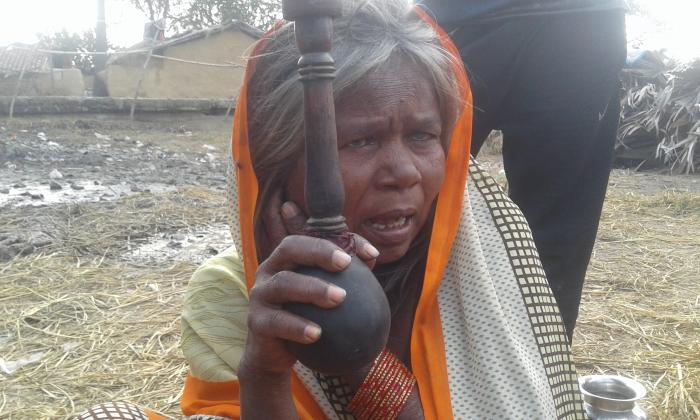
Land less Musahar woman, Shakli Devi. Image Courtesy: Mohd Imran Khan
“We are poor, landless and struggling for survival. There is no paper or document, like my own birth certificate and documentary proof of my ancestors living here since decades. We may be displaced again”, says Shakli, a resident of Hasanpur Musahari under Phulwari Sharif block, about 17 km from Bihar’s capital Patna. She is unaware of the dangerous impact of CAA-NRC-NPR on poor people.
Like any other Musahari or Musahar Toli (a small exclusive hamlet) of Musahar community , Hasanpur Musahari is a poverty-stricken and foul-smelling ghetto of this most deprived community, which got its name as circumstances once compelled them to eat rats. For centuries, the community has been living on the outskirts of powerful, landed upper or dominant caste villages of Bihar.
Musahar at Musahar Toli. Image Courtesy: Mohd Imran Khan
Shakli Devi has no idea about the Citizenship Amendment Act (CAA), National Population Register (NPR) and National Register of Citizens (NRC), which are facing widespread opposition across the country. The old woman believes that it may be like the old zamindari (landlordism) order to vacate land where the community had settled for years.
”In past also, our parents and ancestors were forcibly displaced or shifted from one place to another by powerful landed classes. This time, we may face a similar situation. This is our fate”, says Shakli Devi.
When Ranjeet Manjhi, her young neighbour, explained to Shakli that the CAA-NPR-NRC exercise was a new one and may mark people without documentary proof in the category of ‘doubtful citizens’, the old woman reacted by saying such a thing was wrong and against poor people like her.
Shakli is not alone. There are several poor, landless and illiterate Musahars, who hardly possess proper documents and are bound to face a huge challenge in proving their citizenship in view of the likely implementation of NRC.
Image Courtesy: Mohd Imran Khan
Sumitra Devi, another landless Musahar woman, said most in her community live with her family in thatched houses, built on gair-majarua (government-unclaimed) land because neither they, nor their fathers or grandfathers, owned any land. For generations, they have been earning their livelihood as landless agricultural labourers. ”We have hardly any kagaz-pattar (documents) to prove that we have land and residence here”, she said.
“Hum sochaliya rahalye ke humni ke din badaltai Modi (PM Narendra Modi) lekin kuch na holai, humni ke kismatwa mein dukhe likhal hai”(We expected that good days will come for us after (Narendra) Modi became Prime Minister but nothing has happened. Misery is our destiny), said Sumitra, who is in her mid-50s.
Sumitra Devi’s story reflects the lives of over three million Musahars living in hamlets spread across drought-prone Central and South Bihar and flood-prone North Bihar.
Sumitra Devi pointed out some malnourished Musahar children, who were playing in the nearby field without proper warm clothes in this harsh winter.
Sanichar Manjhi, Vinod Manjhi, Karu Manjhi to Raudhari Manjhi are some others who share one thing in common -- they are Musahars and have no official documents. ”Humni pass kagaz na hai, katey ke zamin na hai, humni gair-majarua pe jhopri banana hua hai”, they said.
Hardly one kilometer for this village lies another one called Dibhra Musahari, but there is no difference in the situation there either. Sakaldeep Manjhi, Munna Manjhi, Chotan Manjhi, Jeetan Manjhi, Manju Devi said they neither had birth certificates nor land documents.
“Musahars are bound to suffer due to lack of documents. I have watched on social media that people who fail to prove their citizenship, will be sent to detention centres. This is an unjust law, not good for poor like us”, said Chotan Manjhi, who works as a construction labourer.
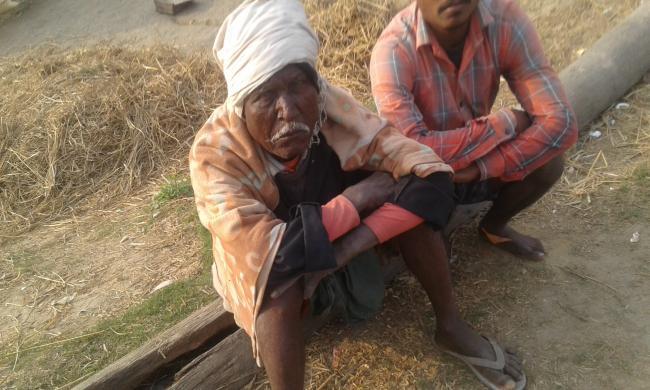
Landless Mushahar man, Shakaldeep Manjhi. Image Courtesy: Mohd Imran Khan
Manju Devi said it was a fact that none of Musahars, including her, own land and have any documents. ”No Musahar possesses any document as they don't have land. Going by reports these days, Musahars will be in trouble in case NRC is implemented”, she added.
Asharfi Sada, president of the Musahar Vikas Manch, which works to raise awareness among the community, said most Musahars had no documents. ”Musahars live near roads or railway tracks, dry canals, ahar or any government land, as they don't have land to permanently settle. As they don't have their own land, how they can produce documents of permanent residence or any other documents?” he said.
Sada is one of the first few Musahars to earn a post-graduate degree in 1991, and has devoted his life for the cause of his community. He told NewsClick that Musahars would be put either in ‘doubtful citizens’ category or in detention centres due to lack of documents if NRC is implemented.
“By implementing NRC, the government will be humiliating Musahars. For generations, this community has been living in different Musahartoli in Patna, but don't have any documents to prove this”, he added.
This landless dalits community, derogatorily referred to as ‘rat eaters’ by the upper castes, are still considered untouchable. Their socio-economic status has not changed much in recent years.
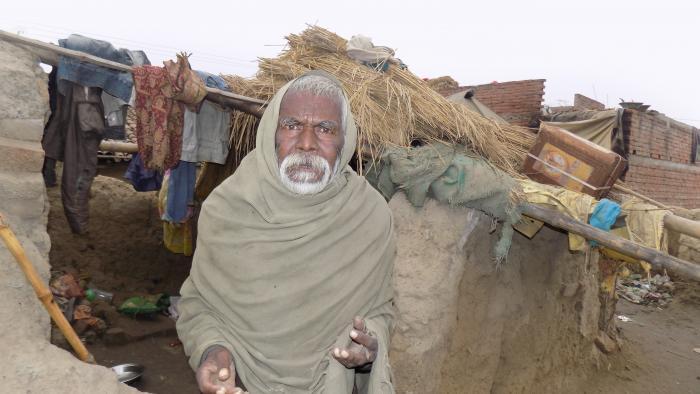
Musahar,Image Courtesy: Mohd Imran Khan
“Earlier, most Musahars were bonded labourers with the rich, landed class, but now they are free from it. But their life revolves around food, and hence the search for work to earn a livelihood”, Sada said.
In Bihar, 96.3% of Musahars are landless and 92.5% work as farm labourers. The figures have not changed much since the 1980s. Literacy in the community is 9.8%, the lowest among dalits in the country. Hardly 1% of Musahar women are literate.
Anto Joseph, director of Bihar Dalit Vikas Samiti, said NRC would impact Musahars much more than any other community, for this one simple fact – lack of documents.
”The majority of Musahar settlements do not have a single document as they are living on gair mazarua land,” he said.
Joseph, who has been regularly visiting Musahar Toli in Gaya district, to study the socio-economic condition of Musahars, said: “Many of them failed to apply for ration cards due to lack of mere Rs 500 to make an affidavit to be submitted at the local office. Only a few of them have Aadhar cards and voter identity cards”, he added.
Joseph also disclosed that some people with vested interests were going around propagating in Musahar Toli that NRC would not affect the community.
”False propaganda is going on in Musahar Toli that NRC will affect Muslims, not them”, he added.
Fr. Jose, who is assistant director of Samiti, argued that if NRC is implemented, the Musahars would be deprived of the benefits of different government schemes, as they would be put in ;doubtful citizen’ category and would automatically become non-citizens, equivalent to being foreign nationals who have no rights.
“All this will happen to them because of lack of documents, which most of them do not have. By and large, the community has no idea of the importance of documents. That apart, they have neither the resources nor the skills or time to run from one office to another to collect documents. Their first priority is to work and earn a living,” he said.
Jose told NewsClick that more than 90% Musahars could land up in detention centres for failing to provide documents. ”Musahars is the most helpless community. These oppressed and suppressed people will be put behind bars for possessing no documents. It will be a terrible human rights violation,” he added.
According to Jose, what is disturbing is that the community is not aware of the repercussions of not having any document. Musahars in large numbers, along with their families, have been migrating to neighbouring Uttar Pradesh or other states to work at brick kilns and construction sites without any documents, and it is unfathomable what awaits them if NRC is implemented.
The plight of Musahars can be imagined from the fact that they are still not allowed to live anywhere in Bihar except in hamlets earmarked exclusively for them. They live in unhygienic conditions, surrounded by pigs and open piles of filth and garbage around. The community is far, far away from mainstream and continues to languish at the bottom-most rung of the caste and class hierarchy.
Get the latest reports & analysis with people's perspective on Protests, movements & deep analytical videos, discussions of the current affairs in your Telegram app. Subscribe to NewsClick's Telegram channel & get Real-Time updates on stories, as they get published on our website.

















